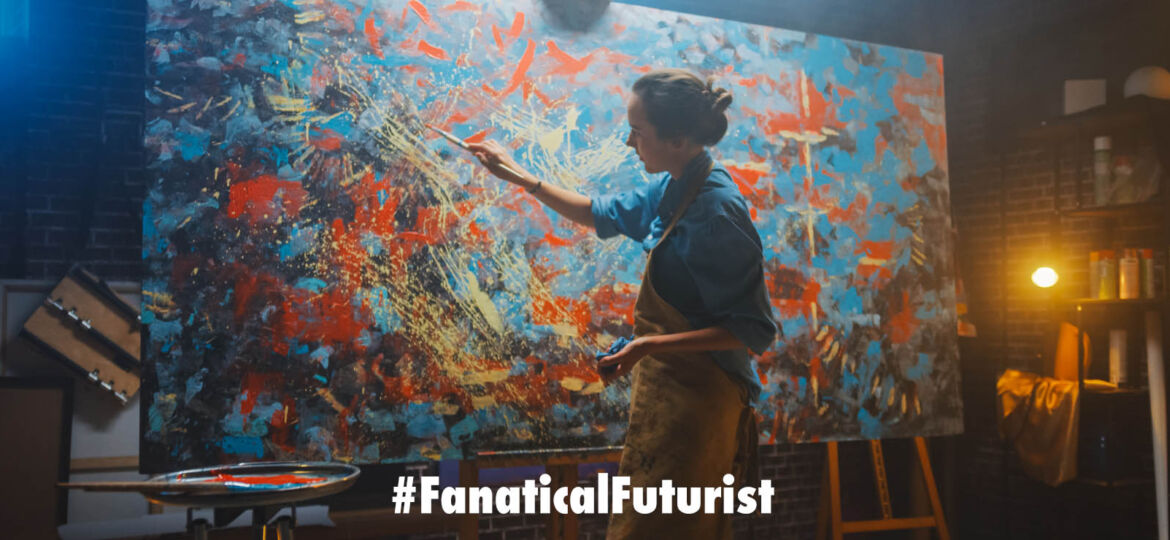
WHY THIS MATTERS IN BRIEF
Many artists and content creators are trying to sue AI companies who trained their Generative AI models on their content, but so far the ai companies are winning.
 Love the Exponential Future? Join our XPotential Community, future proof yourself with courses from XPotential University, read about exponential tech and trends, connect, watch a keynote, or browse my blog.
Love the Exponential Future? Join our XPotential Community, future proof yourself with courses from XPotential University, read about exponential tech and trends, connect, watch a keynote, or browse my blog.
Artists were dealt a significant blow in their ongoing legal war with Generative AI developers, many of whose Artificial Intelligence (AI) models have been trained on artists work which in the public domain then used as the basis to create all manner of synthetic content and images. On Monday, a US District Judge ruled that a lawsuit filed against AI-image generator Midjourney and digital art community platform DeviantArt would not proceed, ruling that the plaintiffs have not provided enough evidence to support their claim of copyright infringement.
Judge William Orrick called the claims of copyright infringement “defective in numerous respects” and granted the defendant’s motion to dismiss.
While the lawsuits against Midjourney and DeviantArt stalled, Orrick, however, did allow a separate claim of infringement against AI developer Stability AI, the creator of Stable Diffusion, by illustrator Sarah Andersen, to move forward.
Generative AI refers to AI programs that use user prompts to generate text, images, videos, and audio. Generative AI models are trained on a large amount of data from various sources, including the internet.
On the matter of DeviantArt – an online social network for artists and art enthusiasts – Orrick noted that the plaintiffs failed to demonstrate how the platform could be faulted for gathering internet content. That was done by LAION, a non-profit based in Germany that makes open-sourced artificial intelligence models and datasets.
“Plaintiffs fail to allege specific plausible facts that DeviantArt played any affirmative role in the scraping and using of Anderson’s and other’s registered works to create the training images,” the judge wrote. “The complaint, instead, admits that the scraping and creation of training images was done by LAION at the direction of Stability, and that Stability used the training images to train Stable Diffusion.”
In the lawsuit, plaintiffs Kelly McKernan, Karla Ortiz, and Andersen alleged that Stability AI violated not only direct copyright infringement laws but also the Digital Millennium Copyright Act (DMCA), the artists’ right of publicity, and the platforms’ terms of service. Orick conceded they may have a case on that front.
“Plaintiffs have adequately alleged direct infringement based on the allegations that Stability ‘downloaded or otherwise acquired copies of billions of copyrighted images without permission to create Stable Diffusion,’ and used those images to train Stable Diffusion and caused those images to be stored at and incorporated into Stable Diffusion as compressed copies,” Orrick said.
The plaintiffs also claimed that art generated in the style of a given artist – potentially billions of variations – also represents copyright infringement.
“Every output image from the system is derived exclusively from the latent images, which are copies of copyrighted images,” the artists argued. “For these reasons, every hybrid image is necessarily a derivative work.”
Attorneys for Stability instead argued that Anderson should be required to identify which of her copyrighted or “registered” works were copied into the training data for Stable Diffusion. Doing so would be difficult, the judge noted.
“The complaint alleges that based on how the diffusion process works, none of the output images are likely ‘to be a close match for any specific image in the training data,’” he said.
In July, Orrick said the plaintiffs must “better differentiate” their allegations and the AI image generation companies. At the time, Orrick said, given the scale of the training data, it was “implausible” that specific works were implicated.
With today’s ruling, he required the plaintiffs to “amend to clarify their theory” related to whether the AI models contain “compressed copies” of their works—or how “algorithms and instructions” can reconstruct them. But he denied Stability’s motion to dismiss the direct copyright infringement claim.
Orrick also denied Midjourney’s request to eliminate the class action aspect of the case, because “precluding the possibility of resolution of issues or claims through a class action is premature.”
The lawsuit against AI image generators is just one of the fronts in the ongoing battle against copyright infringement and AI. In September, several authors, including Game of Thrones creator George R.R. Martin, joined a lawsuit against ChatGPT creator OpenAI, alleging that their work was fed into the chatbot’s training data. Earlier this month, Universal Music Group sued Claude AI developer Anthropic over claims of widespread infringement.
“In the process of building and operating AI models, Anthropic unlawfully copies and disseminates vast amounts of copyrighted works – including the lyrics to myriad musical compositions owned or controlled by publishers,” attorneys for Universal Music Group said in the lawsuit.

















[…] well within OpenAI’s right. But it seems a little tone deaf in light of open letters and lawsuits from creatives alleging that OpenAI’s trained many of its models on their work without their […]